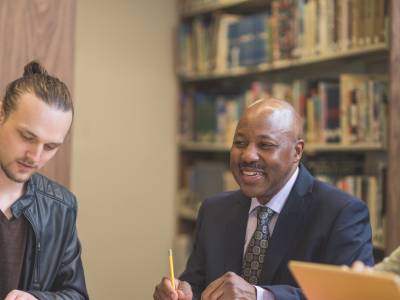Some tips about applying
By tmalmine in Law According to Yale on Oct 10, 2006
Applying for LL.M. Programs
Undoubtedly the most difficult part of your LL.M. project is applying for different programs. For many, it’s the first time writing personal statements, CVs, and other documents in English. Application forms are sometimes difficult to fill and you can never be sure what law schools are looking for in applicants. Additionally, posting paperwork to the United States may be expensive. I hope the following tips will make your life a little bit easier in this regard.
Should I use LSAC’s authentication service?
It depends. LSAC is a service provider, which verifies foreign transcripts and evaluates them. The main benefit of using their service is that you don’t need to send your transcripts to every law school you want to apply to: it’s enough to send them to the LSAC, which verifies them and evaluates your credentials. They seem to use two-tiered assessment: either you’re "superior" or just "average". Once you have paid the service and sent them your transcripts, they will send them, along with their own evaluation, to all the law schools you are applying to (the initial fee covers five schools; if you apply to more than five, you have to pay an additional fee). There are two things to consider before paying for the service. First, because the service is costly, it’s helpful only if ordering transcripts in English is expensive in your country. Second, not all people are satisfied with their evaluation. I was rated "superior" and felt that the assessment was fair and made in a professional manner, but bear in mind that they might rate you as an average student, even though you think of yourself as a super achiever. If you’re not satisfied with the assessment, you can ask for a re-evaluation, but it, too, costs. So, at the end of the day, LSAC may be risky. Nevertheless, I was satisfied with their service. It saved me money and paperwork. If you want to find more about them, see their webpage (https://llm.lsac.org/llm/logon/splash.aspx).
Do I need the be the best student in my country/of this continent/of my law school, or be at the top 2/5/10 % of my class to get accepted to Yale?
Not necessarily. All American law schools purport to have gender diversity, geographic diversity, diversity of interests, and all sorts of diversity. This makes admissions procedure somewhat arbitrary, or at least unpredictable. It’s almost impossible to know beforehand, who will get accepted and who will be rejected. Therefore you should give it a try, even though your grades are not superb.
You do have to convince the admissions committee that you’re one of the top lawyers in your country. But there are many ways to do that. If you’re grades are not perfect, perhaps you have interesting work experience, or impressive pro bono experience, or major merit scholarships, or whatever. If you’re convinced that you would like to study at YLS, why not give it a try. Having said that, I must admit that many people in the graduate program have excellent grades, some have degrees from Oxford or Stanford, and some have quite impressive work experience. Some, however, have less impressive record of merit (I’m one of them) and still they have been accepted.
I need a letter of recommendation. I don’t know any "top guns" in my field, and my own thesis advisor is not a well-known scholar outside my country. Should I try to get a letter from this famous professor whom I don’t really know, but who is my countryman and might write me one? How about asking my former/current employer for a letter of recommendation?
LORs are obviously an important part of your dossier. I believe that the most important thing with them is that they’re written by people who actually know you. If your advisor happens to be a world-famous professor, it will probably carry extra weight. But even if no one at Yale (or Harvard, or any other law school) has heard of your advisor, it doesn’t matter. They are not assessing the person who’s recommending you, they’re assessing you. The LOR should be detailed, not just a general statement ("X is a brilliant student and I really hope he gets to Yale"). It might be helpful to explain to your recommender that you’re applying to an American law school and remind him of using superlatives--here "good" means something like "he’s not a drug addict" and "great" something like "I’ve seen worse students."
I believe the most important LORs are those written by your former professors or thesis advisor. You can send one written by your employer, but being an employee differs from being a student, and consequently, it will carry less weight. If you happen to know the Dean of your law school, beg him to write you a recommendation. In the US, the Dean is a Big Man and his statement can make a difference.
How about personal statements?
I recommend you to concentrate on your study objectives and career-related things. Don’t try to be funny, I think it’s too risky. Things that might be extremely funny in your country might be considered to be in bad taste here, or just plain stupid. It’s safer--if boring--to explain why you want to study in the US, how an LL.M. program fits with your future plans, and why you have chosen to apply just to this or that law school. Just saying things like "Yale Law School is the best law school there is" is to be avoided. No one will be interested in that sort of stuff. What you can do--and many people do--is to name some professors you want to study with and then explain why you’re interested in their scholarship. Otherwise writing a personal statement is literally personal, it’s up to you to make it as interesting as possible. Additionally, I suggest you to show it to a native English speaker to make it look polished.
We have no class rankings in Oceania. How can I describe my credentials to Americans?
The easiest thing to do is to write a memorandum of the your country’s grading system. I wrote a two-page memo about the Finnish grading system evaluating my grades, merit scholarships etc. against the Finnish system. Along with your transcripts, CV, personal statement, and the letters of recommendation, this should give to the reader a clear picture of your academic credentials.
If you have further questions, do not hesitate to ask.
Best,
Toni
Comments
Crazygrrl, Nov 08, 2007 18:43
Hi Toni. I should have discovered your post sooner. I applied for a top 20 JD program for fall '07. I took the LSAT cold and got a 152. I believe I sent a good PS - I stressed the fact that I am one of very few patent lawyers in my country. I only got into the wait list but in the end I didn't make it. I was dumbstruck and heartbroken but I suppose my LSAT was not good enough (I (incorrectly) assumed it didn't matter since I already was a good lawyer and no exam can disprove an existing truth).
I have decided to leave my job to study for the LSAT and write a scintillating PS this time. I just want to know your opinion as to my chances of making it to a top 20 law school considering my previous 152 grade which I understand the schools I apply to will discover. Should I even mention it in my PS? I don't want to move to the US unless I get into a top twenty law school. Your advice will be invaluable
Toni. Thank you very much and God bless.
tmalmine, Oct 16, 2006 15:57
To Daniele: it seems to me that your assessment is probably very accurate. It really makes sense. Unfortunately I can't verify it, but I believe you're right. As regards academic specialization, I believe you're absolutely right. At least it's true here: we all have quite distinct interests, only ConLaw has more students (but then nearly everybody at YLS in interested in constitutional law).
I don't think TOEFL score makes much of a difference. Once they have separated the best applications, TOEFL scores will be pretty good anyway. It could be that an application with a TOEFL score of 250 will not make it to the top, but once again geographic and other quotas might be relevant.
Toni
tmalmine, Oct 16, 2006 15:49
Regarding Early-Admissions Procedure: I'm not really whether it relates to the stature of the school. If I've understood it correctly, EAP is just a convenient way to divide workload for the admissions office. If the school you want to apply has one, you should participate, because you have better chances of getting accepted.
Daniele, Oct 13, 2006 14:18
Thank you again, Toni,
you have answered to almost all of the possible questions one is tempted to ask regarding admissions.
Of course Yale has a very peculiar admission process since - like SPILS and Berkeley - they just look for future law professors and enroll a very limited number of applicants.
Since they are, like all universities, interested in building a strong international legal network I suppose that they have fairly rigid geographical quotas, but it is not possible to verify this hypothesis without knowing where past years' students where coming from.
Having said that, I think they are also looking for academic diversity, i.e. they might try to select students who want to specialize in different areas of law so that every professor is able to interact with foreign students and no one is overwhelmed by an excessive number of them interested in the same subject.
Furthermore, I suppose that they consider each admittted student a potential candidate for an S.J.D. position at Yale law school (again, like SPILS and Berkeley).
This may explain why they ask us to write in our applications what our research agenda is like: To evaluate if we have the potential to fit in into their research environment.
On the other hand, when submitting applications to other law schools (like NYU, Harvard, Michigan, Virginia), we are also competing with future 8or actual) attorneys.
So, unless the program has a huge number of slots available (like NYU and Georgetown) making a prediction on the likely outcome of an application is even more complicated.
To sum it up, if I were an admissions officer I would divide applications according to nation (or region), academic field and, in the case of programs other than Yale, SPILS and Berkeley, career plans (roughly speaking future attorneys vs. future professors, judges and prosecutors).
I would then assign a number of slots to every different group and combination of groups and assign them to the most brilliant students among every group or combination of groups.
If the final result leaves out one or more candidates who are clarly superior to other ones who are to be admitted, I would reconsider those few positions, always trying to not end up very far from what my initial aims were.
I think it is quite difficult to evaluate one's potential of entering into those tiny programs before having received an answer from the law school concerned, since no one knows exactly against who s/he's competing (a fellow countryman, a person who studies the same subject, a lawyer in an elite law firm, a judicial clerk?).
Toni, you are helping all of us who are currently in the middle of the application process a lot.
Let me ask you two questions: do you think the scenario that I envisioned a realistic one ?
And what do you think is the role of the TOEFL score in this calculus ?
Regards,
Daniele
masterofla..., Oct 12, 2006 22:22
Thanks Toni. I must say your messages on this board are most useful and in global public interest! Since you have gone through this process and are currently studying at a very good school, tell me what you make of the Early Action procedure - does it in any way serve as a reflection on the stature of the school? (Columbia, incidentally has Early Action this time around)
Bitsou, Oct 12, 2006 05:18
I agree. It's a very honest assessment of the way law schools proceed (to my knowledge). Though I had good grades (top 5%) of my class, I was surely not the best one and still got admitted at Yale as well. While grades are obviously the main criterion for students who apply directly after graduation, this is not the case for the ones with working experience, publications or involvments in associations, pro bono etc. Quite understandably, law schools LOVE publications. As to the letters of recommendations, it's true that letters of professors will be highly regarded, but the most important is for your advisors to know you very well (if they are professors, alumnus of the law school, that's gold, but this is not necessary).
roscoe, Oct 12, 2006 01:48
I think we all agree with Lit there. To share not only your insights but also your admission experiences AFTER (!) you're accepted - that's something. So heartfelt thanks to Toni, 'our' man in Yale! Keep up the good work. And please keep adding more. I personally know a handful of people begging for more, which, well, includes me. :-)
Lit, Oct 10, 2006 15:18
What will we ever do if Toni leaves this Board? As always, invaluable information shared with those who might want to apply to Yale or anywhere else. Thanks once again Toni, best of luck, keep us updated with your progress, how you're managing the workload and how life is in New Haven. Later...
LLM News
LLM Articles
Why Tech Law is the Hot New LL.M. Focus in an AI Era
Nov 14, 2024
Schools are helping lawyers prepare for a fast-changing legal world impacted by AI and developing technology. Students can benefit from a cutting-edge curriculum and new job opportunities.
Connect with Top California Law Schools
Nov 07, 2024
The California Law LL.M. Consortium is giving prospective students in Milan and London the opportunity to meet school and admissions representatives. They will hear about top legal issues and learn about how a U.S. LL.M. can benefit their careers.
Leaping Back into Firm Life After an LL.M.
Nov 05, 2024
Leaving school behind can feel daunting but if a graduate understands the different expectations and is conscious of new technology, it can make returning to a firm that much easier.
Making the Most of Your LL.M.: Why Extracurricular Groups Matter
Oct 28, 2024
Activities outside class time can give students a more well-rounded experience during their degree. They can build crucial skills and expand a student's network to benefit their post-school life.













